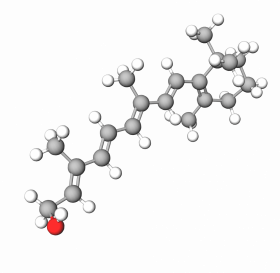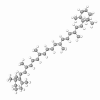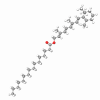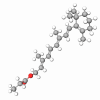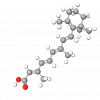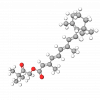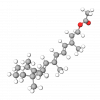Retinol is one of the forms of vitamin A (also called vitamin A1) that plays a critical role in maintaining essential functions in the body, such as:
- Essential for vision
- Necessary for the proper functioning of the immune system
- Essential for tissue differentiation
- Helps maintain cell membrane structure
- It is needed to maintain, grow, and healthy teeth, nails, bones, hair, and skin.
Applied topical, it leaves multiple beneficial effects on the skin and is used in formulas for:
- Anti-keratinizing action
- Increase in skin elasticity
- Thickening of the epidermis and dermis
- Normalization of dry skin
- Reversal of photodamage
- Reduction of scaliness and normalization of the scalp when used in hair care products
However, retinol has a low of weak points because of instability in formulations:
- Temperature: It is heat sensitive and should be added to the emulsion at 40C (104 F).
- Oxygen: Sensitive to oxygen and, therefore, require the addition of other antioxidants, especially 0.1% Tocopherol and 0.1% Ascorbyl Palmitate.
- Incompatible with BHT (yellowing) when exposed to light and elevated temperatures.
- Solubility: It can be used only in oily systems, W/O emulsions, or O/W Microemulsions.
- Heavy Metals: Sensitive Heavy Metals and the addition of chelating materials is necessary.
- pH: Optimal pH is 6 with a range of 4.5 to 6.5.
- Package: Exposure to light and oxygen should be avoided, and opaque and tight packaging is necessary.
- Manufacturing Conditions: Preferred manufacturing conditions include reduced light exposure and moderate agitation (to eliminate aeration).
Manufacturers prefer to use more stable forms of vitamin A, like vitamin A Palmitate, instead of alcohol (retinol), for comparative stability.
What are the benefits of Retinol?
Retinol activates fibroblasts which boosts collagen production, resulting in thickening of the epidermis and dermis, and decreasing wrinkles and fine lines.
UV light reduces the levels of Vitamin A in the skin and activates the collagenase, which hydrolyzes the collagen in the connective tissues. This process is called photodamage, results in dagging and wrinkled skin. Treatment with retinoids, particularly retinol, reverses the photodamage and photoaging processes.
Retinol is essential for the structure and function of mucous membranes. In a deficient vitamin A state, mucous production is reduced. It can also be considered a cancer preventative ingredient due to squamous metaplasia. In addition, retinol is helpful in the treatment of senile vaginitis.
After prolonged application of the retinol on photoaged human skin, it corrects Atrophy and Atypia, increases the granular layer with the prominent large granules, improves orderly cell differentiation, and enlarges intercellular spaces of the epidermis.